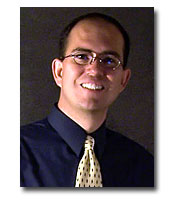Daniel Moirao is the past president of the National Speakers Association Northern California (NSA/NC). As a professional speaker himself, he’s delivered keynotes to professional associations, public education institutions, as well as international curriculum associations and numerous start-up businesses.
“Nothing trumps the marketing power of face to face speaking engagements,” says Moirao. “Public speaking is the best way to establish a reputation, attract new opportunities and generate that leads that can turn into customers and clients.”
As president of the NSA/NC, he saw first hand that successful speakers understand how to position and market themselves to speaking opportunity gatekeepers. “Although technology has changed how people communicate, there’s still a need for speakers at events, meetings and conferences. New speakers must understand the key is blending traditional and online strategies to stand out and land speaking slots while building a long-term foundation for a successful speaking career.”
Build Your Foundation. “Many early stage speakers don’t recognize how much marketing is involved in getting speaking engagements, especially now that there’s fewer speaking opportunities than a decade ago,” says Moirao. “You can’t just post YouTube videos. As a beginning speaker you need to work hard to establish a reputation that gets people calling you.”
Companies need information from experts. This has led to more opportunities for speakers to present on webinars. “Webinars are a great way to get your foot in the door by delivering value that can lead to live speaking engagements,” says Moirao. “I recently delivered webinars to three organizations about all of which became face-to-face clients. Each time, after the second webinar, all three have said asked, “Can you do a live event for us?”
Thought leadership. Recognition from the outside world matters. “Speakers must project a credible brand. It’s not enough to declare yourself an expert. You need third party validation to get your foot in the door, facilitate conversations with meeting planners and will ultimately make getting speaking gigs easier.”
If you’re just starting out, Moirao recommends creating a one-year plan to position yourself as an industry expert. Generate and include media clippings in your speaking kit. Blog about topics that relate to your talks, publish articles in trade media, and create an overall platform designed to impress meeting planners.
Develop Your Online Presence. Meeting planners use the Internet to discover, evaluate and validate that speakers know their subject matter and that others recognize their expertise. Therefore, your website should clearly display your availability as a speaker, including your speaking topics and a list of past speaking events and recommendations from meeting planners.
Take steps to boost your online presence. Your blog should showcase key speaking topics to help meeting planners quickly grasp your expertise. Approach social media strategically to create a good impression with meeting planners who visit your social media platforms. Respond to influencer blog posts or participate in LinkedIn Group discussions. “I know one speaker who attracts speaking engagements from all over the world by posting articles from other experts in LinkedIn groups, says Moirao”
Connect with well-known thought leaders. Meeting planners judge you by the company you keep. Look for ways to affiliate and connect yourself with thought leaders so that meeting planners see you as a contributor to your industry.
“When you’re connected to reputable experts, your credibility skyrockets,” says Moirao. “I know a speaker who got several business thought leaders to write acknowledgments for her book. Now, she’s shoulder to shoulder with recognized thought leaders, which generates a powerful first impression when a meeting planner checks her out for a speaking opportunity.”
You have to be consultative. “Speakers can’t just entertain or motivate an audience,” says Moirao. “Now, meeting planners choose speakers who deliver practical value tailored to particular audiences. They expect speakers to research audiences beforehand to discover their challenges and concerns and develop presentations with useful information that attendees can implement immediately.”
Moirao advises speakers to help audiences see the big picture, overcome information overload and provide immediate actionable tasks. “Audiences are better informed and don’t want surface knowledge they can easily find online,” says Moirao. Speakers should see their role as helping audiences grow beyond their current capacity. This means staying current in their industries your industry and building a reputation to establish long-term relationships with gatekeepers that lead to more speaking opportunities.


 Jason Alba is the author of I’m On LinkedIn, Now What???, a popular primer on how to get the most out of LinkedIn, the powerful online networking site with over 32 million members that can help you cultivate business connections and opportunities. Alba experienced the power of LinkedIn in his role of CEO of JibberJobber, an online job search tool. He used LinkedIn to proactively build his business and boost his reputation as a thought leader in his field. Jason shares his experiences and provides tips and strategies to harness LinkedIn to develop professional relationships in your business life
Jason Alba is the author of I’m On LinkedIn, Now What???, a popular primer on how to get the most out of LinkedIn, the powerful online networking site with over 32 million members that can help you cultivate business connections and opportunities. Alba experienced the power of LinkedIn in his role of CEO of JibberJobber, an online job search tool. He used LinkedIn to proactively build his business and boost his reputation as a thought leader in his field. Jason shares his experiences and provides tips and strategies to harness LinkedIn to develop professional relationships in your business life